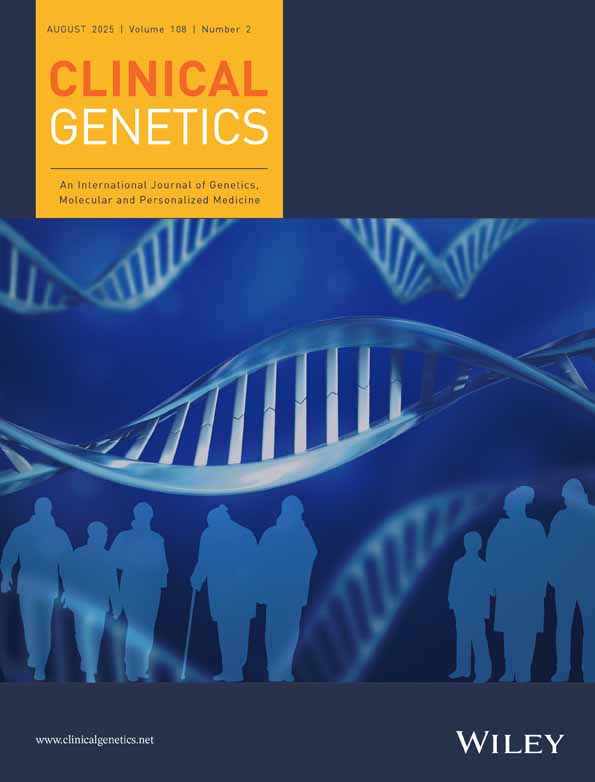Insertion /deletion (I/D) polymorphism at the locus for angiotensin I-converting enzyme and parental history of myocardial infarction
Abstract
Bøhn M, Berge KE, Bakken A, Erikssen J, Berg K. Insertion/deletion (I/D) polymorphism at the locus for angiotensin I-converting enzyme and parental history of myocardial infarction.
Clin Genet 1993: 44: 298–301. © Munksgaard, 1993
One hundred and eighty-one male and 48 female myocardial infarction (MI) survivors and 172 male and 194 female controls were studied with respect to a possible association between premature parental MI (before age 61 years in mothers and/or before age 56 years in fathers) and an insertion/deletion (I/D) polymorphism in the gene encoding angiotensin I-converting enzyme (ACE). In the total series, the frequency of premature parental MI was 14% in the DD (homozygotes for the deletion (D) allele) genotypic group, 10.6% in the ID (heterozygotes) genotypic group and 6.1% in the II (homozygotes for the insertion (I) allele) genotypic group. In all males (male MI survivors and male controls combined), and in the total series, there was a significant excess of DD individuals as compared to II individuals among those with a parental history of premature MI (odds ratio 3.1 (p = 0.03) and 3.1 (p = 0.009), respectively). The ACE polymorphism may be an important genetic marker of MI risk and contribute to clustering of premature MI in families.




